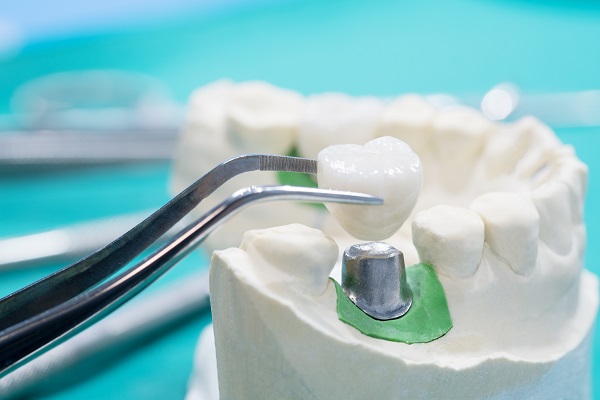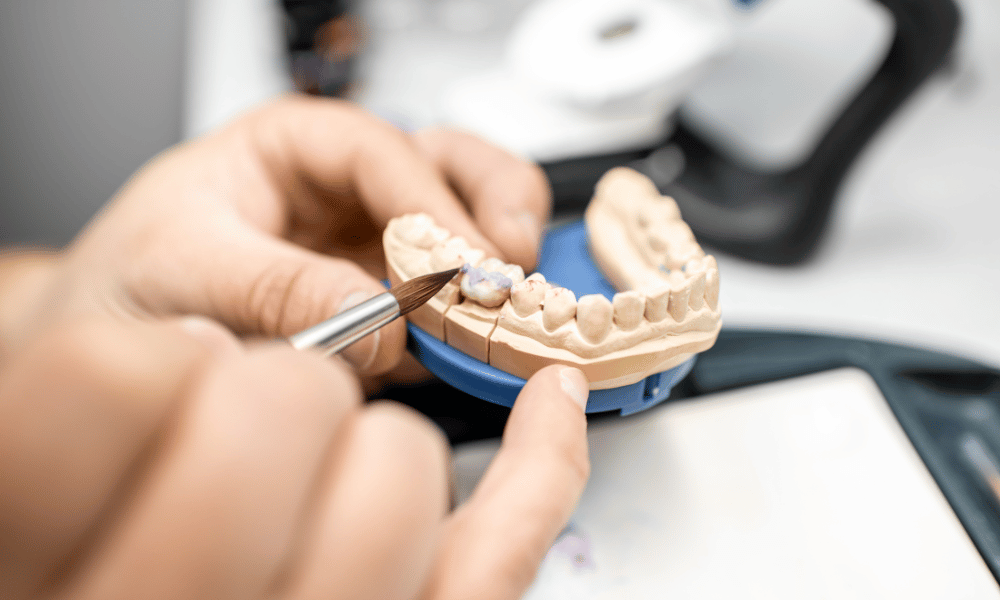Dental crowns are a popular and effective solution for various dental issues. Whether you’re dealing with a broken tooth, a large cavity, or cosmetic imperfections, a crown can restore the function and appearance of your teeth. You can visit a dentist office in San Jose, California, to determine whether dental crowns are a viable option for you.
Here are six essential facts you should know about dental crowns:
#1 What is a Dental Crown?
A dental crown is a cap that encases the entire visible portion of a tooth, providing strength, protecting the tooth from further damage, and enhancing its appearance. Crowns can be made from various materials, including porcelain, ceramic, metal, and resin. They are custom-made to match the shape, size, and color of your natural teeth, ensuring a seamless fit within your smile.
Types of Dental Crowns
- Porcelain/Ceramic: These crowns offer the most natural look and are often used for front teeth.
- Metal: Made from gold or other metal alloys, these crowns are durable and ideal for molars.
- Porcelain-Fused-to-Metal (PFM): Combines the natural look of porcelain with the strength of metal.
- Resin: A more affordable option, though less durable than other materials.
#2 When Are Dental Crowns Needed?
Dental crowns serve multiple purposes in restorative and cosmetic dentistry. They are commonly used in the following scenarios:
- To Protect a Weakened Tooth: Teeth that have been weakened by decay or large fillings may need crowns to prevent further deterioration.
- To Restore a Broken Tooth: If a tooth is cracked or severely worn down, a crown can restore its shape, strength, and functionality.
- After Root Canal Treatment: Teeth that have undergone root canal treatment are often covered with crowns to provide additional support and protection.
- For Cosmetic Enhancements: Crowns can improve the appearance of misshapen or discolored teeth.

#3 The Procedure: What to Expect
Getting a dental crown typically involves two visits to the dentist.
First Visit: Preparation
- Examination and Preparation: The dentist will examine and prepare the tooth, which may involve filing it down to make room for the crown.
- Impressions: Impressions of the prepared tooth and surrounding teeth are taken to create a custom crown.
- Temporary Crown: A temporary crown is placed over the tooth to protect it until the permanent crown is ready.
Second Visit: Placement
- Permanent Crown: The temporary crown is removed, and the permanent crown is checked for fit and color before being cemented into place.
#4 Longevity and Durability
The lifespan of a dental crown depends on the material used and how well you care for it. On average, crowns can last between 5 to 15 years. To extend the longevity of your crown, practice good oral hygiene by brushing and flossing daily and visiting your dentist regularly for check-ups.
Tips for Care
- Avoid Hard Foods: Be cautious with hard foods like ice, nuts, and hard candies, as they can crack the crown.
- Oral Hygiene: Maintain excellent oral hygiene to prevent decay around the crowned tooth.
- Regular Dental Visits: Regular check-ups help detect any potential issues early.
#5 Potential Risks and Complications
While dental crowns are generally safe and effective, there are some potential risks and complications to be aware of:
- Sensitivity: Some patients experience sensitivity to hot or cold temperatures after getting a crown.
- Discomfort or Pain: Discomfort or pain when biting down may indicate that the crown is too high.
- Chipping or Loosening: Porcelain crowns can sometimes chip, and crowns can become loose over time due to wear and tear.
#6 Cost Considerations
The cost of a dental crown can vary widely based on the material used, the complexity of the procedure, and your geographic location. Generally, porcelain and ceramic crowns tend to be more expensive than metal or resin crowns. Dental insurance may cover part of the cost, especially if the crown is necessary for medical reasons rather than purely cosmetic ones. So, it’s important to discuss costs and payment options with your dentist before proceeding with the treatment.
Conclusion
Dental crowns are a versatile and reliable solution for many dental issues. Understanding the types, procedures, and care involved can help you make an informed decision about whether a dental crown is right for you. However, always consult with your dentist to determine the best treatment plan for your specific needs.

